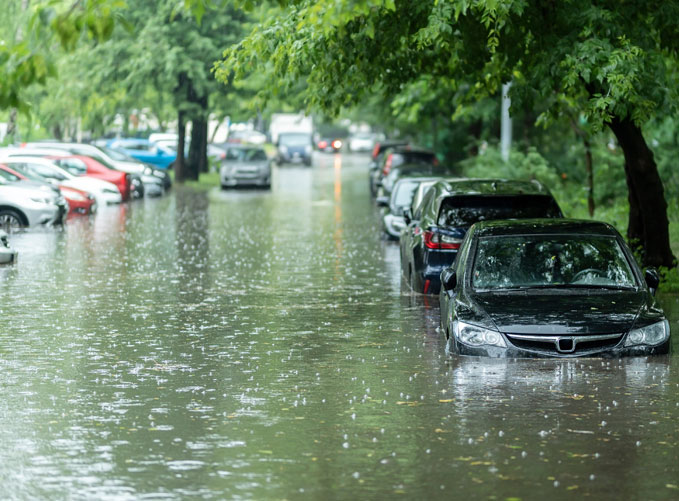Climate Change Resilience
Are you exasperated about the lack of action on climate change? Feel like there is nothing you can do? Well you are not alone, and apparently, there is something you can do. More and more people are resigning themselves to the idea that we have lost the battle over the politics but there are still things to do about winning the war.
Climate Change Resilience is the new buzzphrase and is the next thing to do for people wanting to prepare for climate change. If it is too late to avert change, what can we do to make it the least catastrophic as possible – so the thinking goes?
Don’t head for the hills
The positive spin is not to build bunkers or buy baked beans in bulk. Survivalism always looked so depressing, lonely and boring. The idea is to prepare for the reality that the planet’s temperature will increase and inform ourselves about how to make that manageable. The challenge is to not retreat into despondency, but find locations and communities that can be resilient, cohesive, sustainable and self-sufficient.
The other positive spin on this rather depressing subject is that not all governments, politicians and corporations have their head in the sand. In October Byron Council hosted a presentation on building reliance into local communities. The NSW Coalition government is a lot more proactive about this than their Federal counterparts. Likewise, some corporations and fund managers, especially those in risk management or insurance, are actively preparing for a warmer future.
Well-known American novelist Jonathon Franzen recently published an essay, What if we stopped pretending? in the September issue of New Yorker magazine. It galvanised a lot of attention. The basic premise is that this problem is beyond the capacity of present leaders to manage. Humanity, of all cultures and persuasions, do not have the wherewithal, or now the time, to do what needs to be done.
He writes: The first condition is that every one of the world’s major polluting countries institute draconian conservation measures, shut down much of its energy and transportation infrastructure, and completely retool its economy. …. To stay within that allowance, a top-down intervention needs to happen not only in every country but also throughout every country. Making New York City a green utopia will not avail if Texans keep pumping oil and driving pickup trucks.
It’s fine to struggle against the constraints of human nature, hoping to mitigate the worst of what’s to come, but it’s just as important to fight smaller, more local battles that you have some realistic hope of winning. Keep doing the right thing for the planet, yes, but also keep trying to save what you love specifically—a community, an institution, a wild place, a species that’s in trouble—and take heart in your small successes. Any good thing you do now is arguably a hedge against the hotter future, but the really meaningful thing is that it’s good today. As long as you have something to love, you have something to hope for.
Climate Change Resilience and the Sustainable Home
Franzen’s philosophy has a cohort closer to home. In 1996 Michael Mobbs, an environmental lawyer, converted his two-storey 19th century Sydney terrace into one of the world’s first inner-city self-sufficient homes. This September he decided to put the property on the market and move to Bermagui, on the NSW south coast. Mobbs has been on the frontline of the climate and sustainability debate for decades. He has now decided to opt for managing the change instead of trying to stop it. He is moving somewhere where there are trees, water, good soil and a strong cohesive community.
“My guess is water, energy, food, the seasons and economies will collapse in the next three to five years,” he says. “Am I certain of these things? No. But like someone diagnosed with cancer expected to kill me in the next five years, I am now preparing for my personal circumstances over the next few years.”
He is co-creating a new compound that is due for completion in December – a prefabricated, bushfire-proof, fully sustainable home constructed with recycled materials. He is in partnership with Melbourne-based modular housing specialists Fairweather Homes and Lismore-based renewables company 24 Hour Solar Power.
“There may come a time, sooner than any of us likes to think, when the systems of industrial agriculture and global trade break down and homeless people outnumber people with homes. At that point, traditional local farming and strong communities will no longer just be liberal buzzwords. Kindness to neighbors and respect for the land—nurturing healthy soil, wisely managing water, caring for pollinators—will be essential in a crisis and in whatever society survives it,” says Mobbs.
Byron and all the Northern River’s shires are already endowed with many of the essential ingredients useful for resilience – water, good soil, relatively good social cohesion. The question is, Will the bubble burst, or can life as we know it to be modified sufficiently to offer us refuge in difficult times to come?
Useful Links on Climate Change Resilience:
The North Coast Enabling Regional Adaptation Report can be downloaded here
Jonathan Franzen’s New Yorker article is here:
Michael Mobb’s Guardian article on change of heart is here
Related Articles
We Need to Talk About This: Good Development vs Bad Post Flooding
Insurance in the time of Climate Change
The Wash Up – Who Wants to Live in a Flood Zone?

